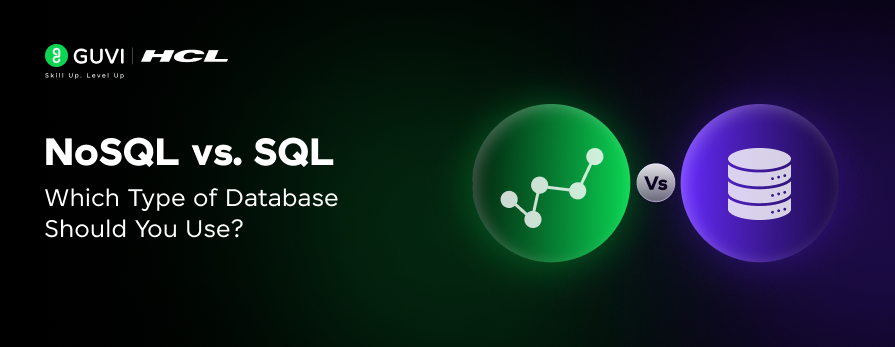
NoSQL vs SQL: Which Type of Database Should You Use?
Oct 09, 2024 3 Min Read 3684 Views
(Last Updated)
The debate about NoSQL vs SQL databases depends on various factors, such as the type of data you are dealing with, scalability needs, development speed, and your application’s specific requirements.
Both types of databases have their strengths and ideal use cases, so understanding the differences between them is crucial in making the right decision.
This article comprises everything related to the debate on NoSQL vs SQL. So, without further ado, let us get started!
Table of contents
- NoSQL vs SQL: Key Differences Between Databases
- When to Use SQL Databases?
- Structured Data
- Complex Queries
- ACID Compliance
- Long-term, Relational Data
- Consistency Over Availability
- When to Use NoSQL Databases?
- Unstructured or Semi-Structured Data
- Horizontal Scalability
- High-Performance and Low Latency
- Schema Flexibility
- Handling Massive Data Volumes
- Eventual Consistency
- Choosing Between NoSQL vs SQL: Key Considerations
- Data Structure
- Scalability Needs
- Transaction Requirements
- Speed and Performance
- Development Flexibility
- Conclusion
NoSQL vs SQL: Key Differences Between Databases
| Feature | SQL (Relational Databases) | NoSQL (Non-relational Databases) |
| Data Model | Structured, tabular (rows and columns) | Flexible, can be document-based, key-value, graph, etc. |
| Schema | Predefined, rigid schema | Dynamic or schema-less |
| Scalability | Vertical (increasing server size) | Horizontal (adding more servers) |
| Transactions | Strong ACID compliance | BASE model (Eventually consistent, scalable) |
| Use Case | Structured data, complex queries | Large-scale, unstructured, distributed data |
| Query Language | SQL (Structured Query Language) | Varies (e.g., MongoDB query language, Cassandra CQL) |
| Performance | Suitable for complex queries with joins | High throughput and performance in distributed environments |
| Consistency | Strong consistency | Eventual consistency (though some offer strong consistency options) |
When to Use SQL Databases?
SQL databases are best suited for applications that require structured data, transactional consistency, and complex querying. Some common scenarios where SQL databases shine include:
1. Structured Data
If your data is highly structured and fits neatly into tables with fixed rows and columns, SQL is a good fit. Relational Databases like MySQL, PostgreSQL, and Oracle use tables with predefined schemas, making it easier to enforce data integrity.
- Example: Banking applications, where transactions must follow a strict structure and consistency.
2. Complex Queries
SQL databases excel in running complex queries, especially those that require multiple joins, aggregations, and filtering. If your application needs advanced querying capabilities, SQL’s structured query language (SQL) provides a powerful, standardized way to interact with your data.
- Example: Reporting and analytics systems that require complex relationships between tables.
3. ACID Compliance
For applications that need ACID (Atomicity, Consistency, Isolation, Durability) transactions, SQL databases provide strong guarantees for ensuring data reliability. This is important when data consistency is more critical than speed, such as in financial transactions or inventory systems.
- Example: E-commerce platforms where inventory updates and financial transactions must be handled with strict consistency.
4. Long-term, Relational Data
When your data model involves well-defined relationships between entities (like customer orders, product details, etc.), SQL is ideal. These relationships are enforced through foreign keys and joins, which are powerful mechanisms in relational databases.
- Example: Customer Relationship Management (CRM) systems, where customer data must be linked to multiple tables like orders, interactions, and support tickets.
5. Consistency Over Availability
SQL databases are strongly consistent, meaning they ensure that any read operation will return the most recent write. If your application values consistency over availability or speed, SQL databases are a good choice.
- Example: Payment processing systems, where showing accurate account balances is critical.
When to Use NoSQL Databases?
NoSQL databases are designed to handle a wide variety of data models and are well-suited for applications with unstructured, distributed, or rapidly evolving data. Here are some situations where NoSQL databases shine:
1. Unstructured or Semi-Structured Data
If you’re working with data that doesn’t fit neatly into a table—such as documents, JSON, XML, or multimedia files—a NoSQL database is better suited. NoSQL databases like MongoDB or Couchbase can store and retrieve this type of data without needing a rigid schema.
- Example: Social media platforms where user-generated content (posts, comments, media) doesn’t follow a strict structure.
2. Horizontal Scalability
If your application needs to scale horizontally (across multiple servers), NoSQL databases are ideal. Their distributed architecture allows you to handle massive amounts of traffic by simply adding more servers to the cluster, which is key for applications that need to grow quickly.
- Example: Applications like Facebook or Twitter, which deal with large volumes of data and require distributed storage across multiple regions.
3. High-Performance and Low Latency
NoSQL databases can handle high-throughput operations and are optimized for speed in read and write operations, especially for large datasets distributed across multiple servers. If your application needs to process thousands of requests per second, NoSQL databases like Cassandra or Redis are a better fit.
- Example: Real-time analytics systems, where large amounts of data need to be ingested and processed with low latency.
4. Schema Flexibility
NoSQL databases provide schema flexibility, meaning you can change the data structure at any time without having to restructure the database. This makes NoSQL a good choice for applications in rapid development or agile environments where the data model changes frequently.
- Example: Startups or dynamic applications where product features are constantly evolving, and data structures need to be adjusted without downtime.
5. Handling Massive Data Volumes
For big data applications, NoSQL databases are often better suited. They are designed to manage massive, distributed datasets across clusters, making them highly effective for storing and processing terabytes or petabytes of data.
- Example: IoT applications where billions of data points from sensors need to be stored and analyzed in real-time.
6. Eventual Consistency
Many NoSQL databases follow the BASE model (Basically Available, Soft state, Eventually consistent). This means that while they may not provide immediate consistency like SQL databases, they ensure eventual consistency, which is often sufficient for applications prioritizing availability and partition tolerance over strict consistency.
- Example: E-commerce catalogs or product recommendation systems, where brief inconsistencies (e.g., in stock information) are acceptable in exchange for fast performance.
Choosing Between NoSQL vs SQL: Key Considerations
When deciding between SQL and NoSQL, consider the following factors:
1. Data Structure
- SQL: If your data is structured and follows a predefined schema with clear relationships, SQL is the way to go.
- NoSQL: If your data is unstructured, semi-structured, or you need schema flexibility, NoSQL is a better fit.
2. Scalability Needs
- SQL: Suitable for vertical scaling, where you improve hardware capacity as your data grows.
- NoSQL: Ideal for horizontal scaling, where you add more servers to handle increasing loads.
3. Transaction Requirements
- SQL: If you need strong ACID compliance for consistency and transaction safety, choose SQL.
- NoSQL: If you can tolerate eventual consistency for faster performance and scalability, NoSQL databases are better suited.
4. Speed and Performance
- SQL: Use SQL for applications that require complex joins and relational queries.
- NoSQL: Choose NoSQL for applications needing fast read/write operations on massive datasets across distributed systems.
5. Development Flexibility
- SQL: Best for stable applications with fixed schemas and low-frequency schema changes.
- NoSQL: Ideal for agile, fast-moving environments where the data model evolves frequently.
In case, you want to learn more about SQL and server management, consider enrolling for GUVI’s Certified SQL Server Course that teaches you everything from scratch and make sure you master it!
Conclusion
In conclusion, both SQL and NoSQL databases have their strengths and weaknesses. Your decision should depend on the specific needs of your application, including data structure, scalability, performance requirements, and consistency needs.
For structured, relational data with a need for complex querying and strong consistency, SQL databases are the way to go. On the other hand, if you need flexibility, scalability, and the ability to handle large, distributed, or unstructured datasets, NoSQL databases will better serve your needs.
In many modern applications, a polyglot approach—using both SQL and NoSQL databases—is becoming increasingly common, leveraging the strengths of both for different parts of the system.

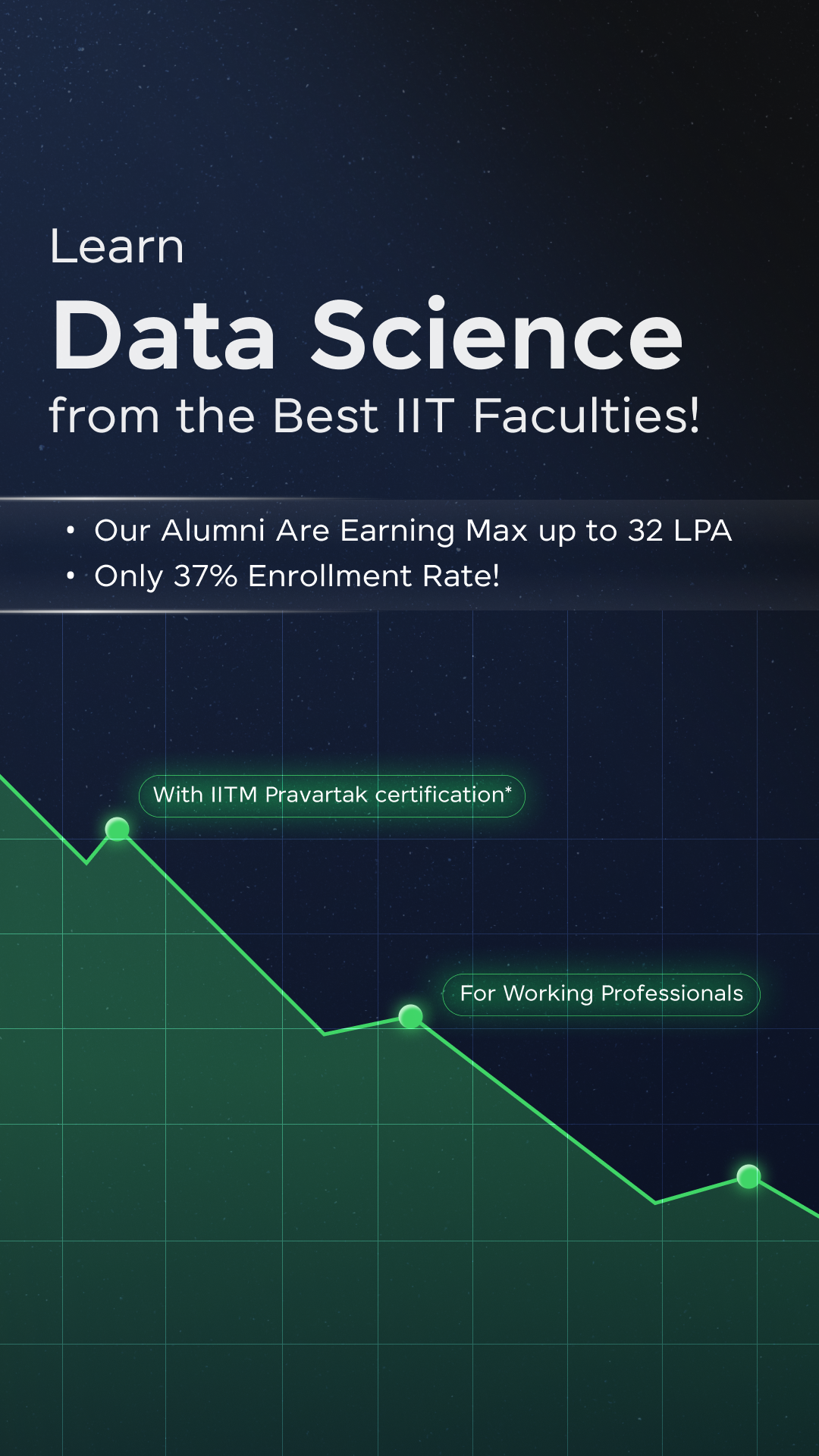



















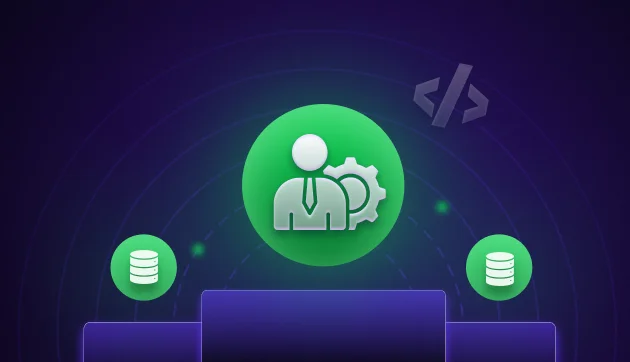
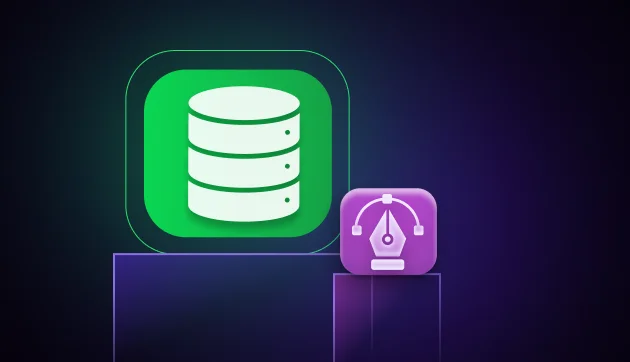
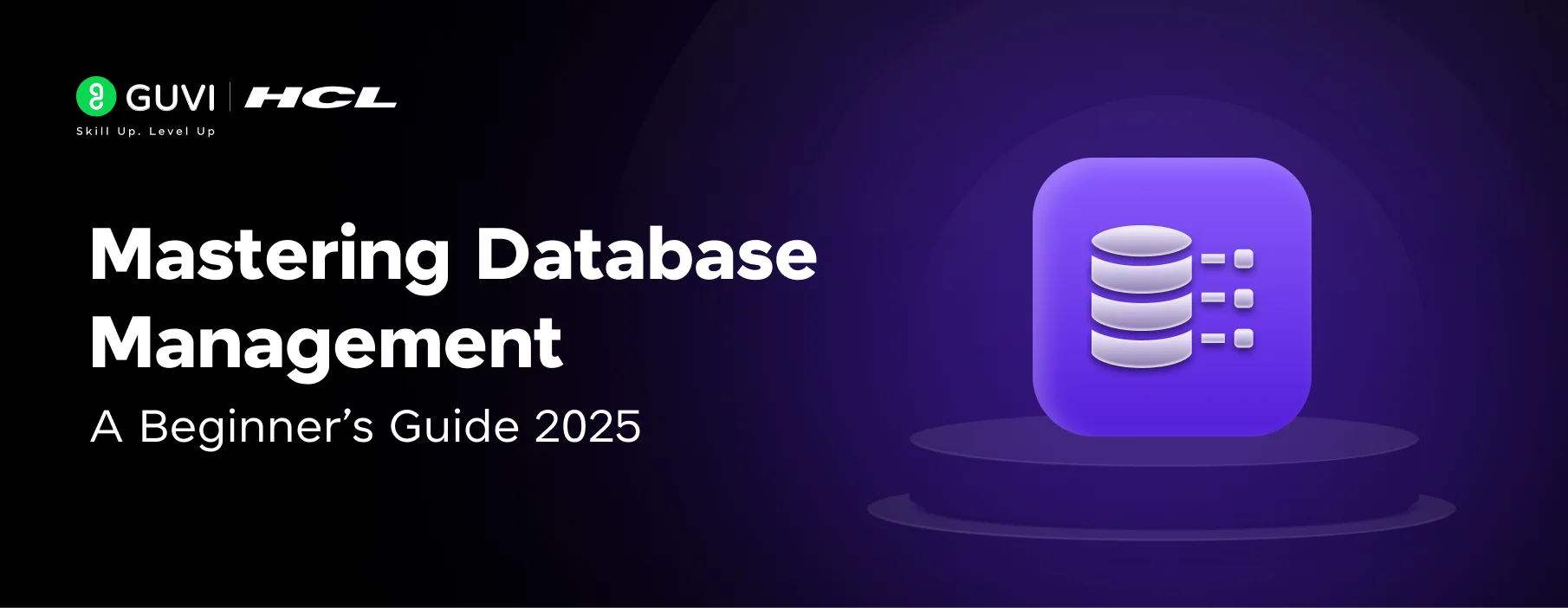
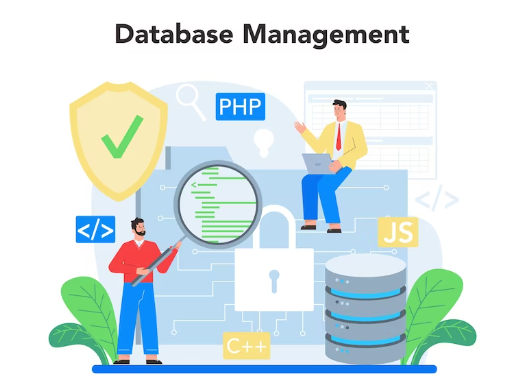
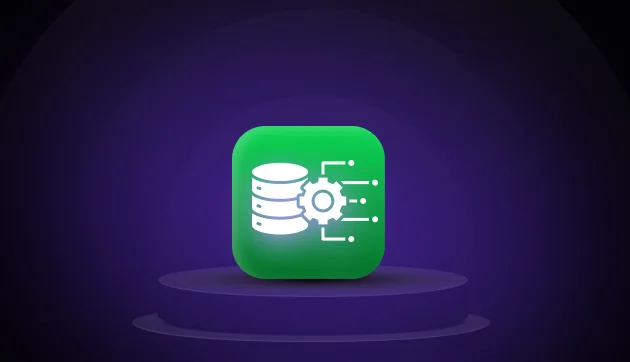
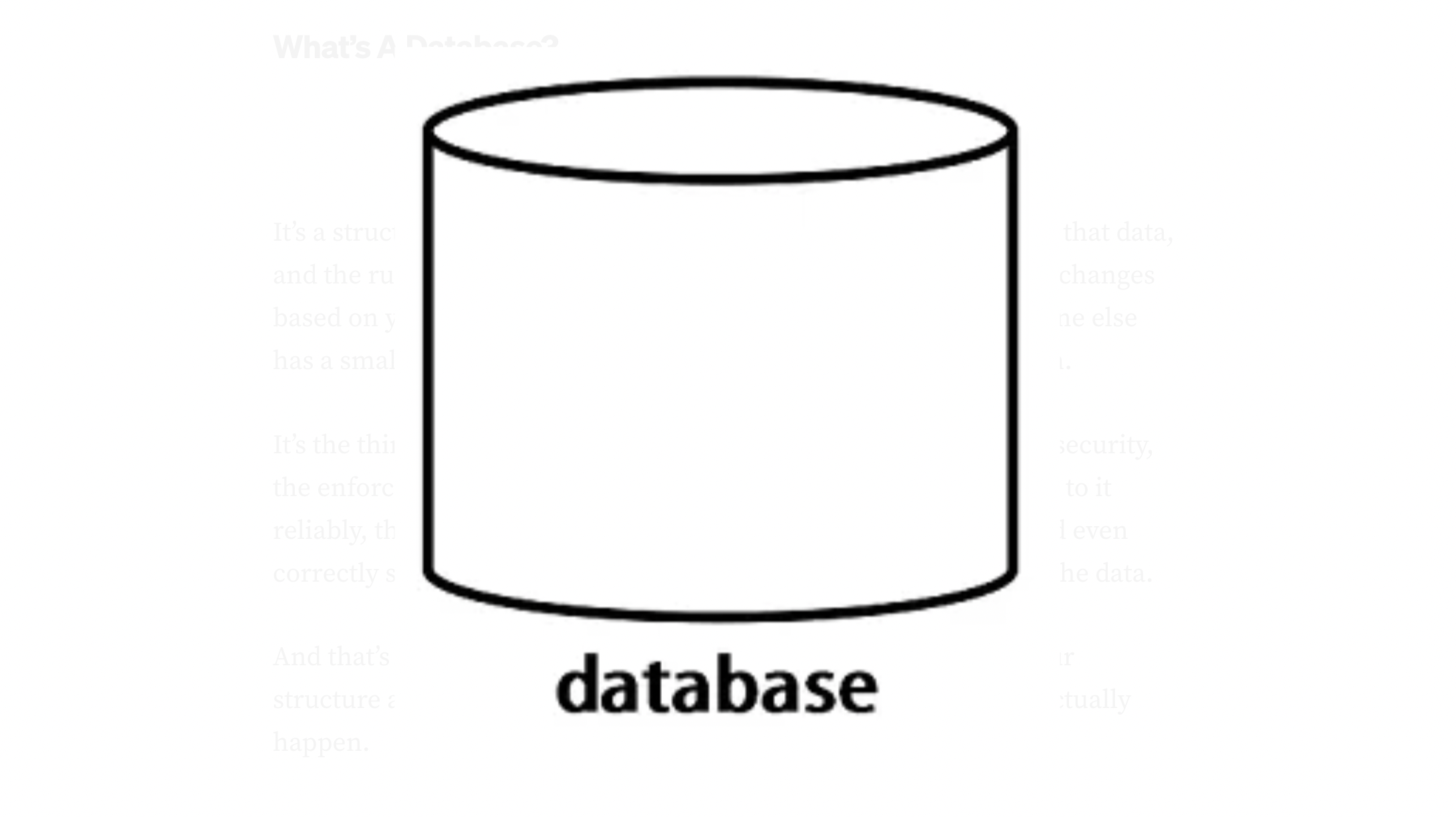

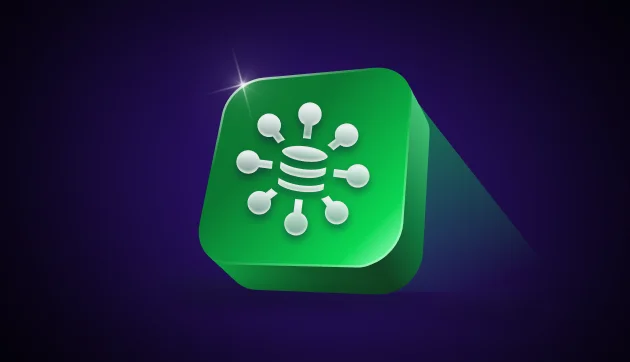


Did you enjoy this article?